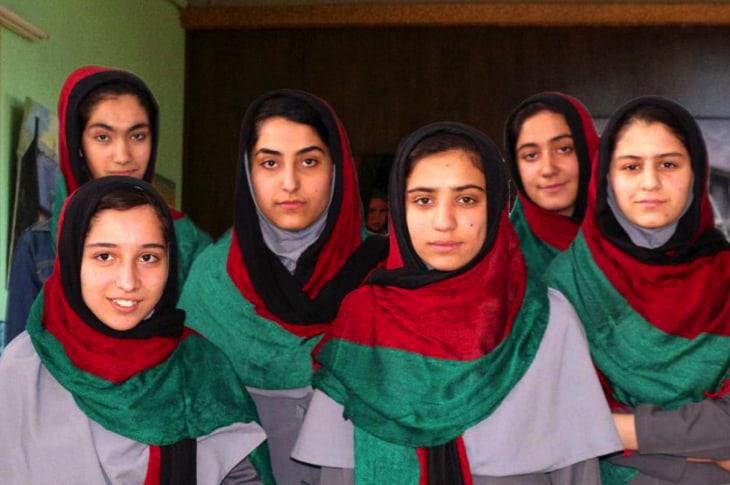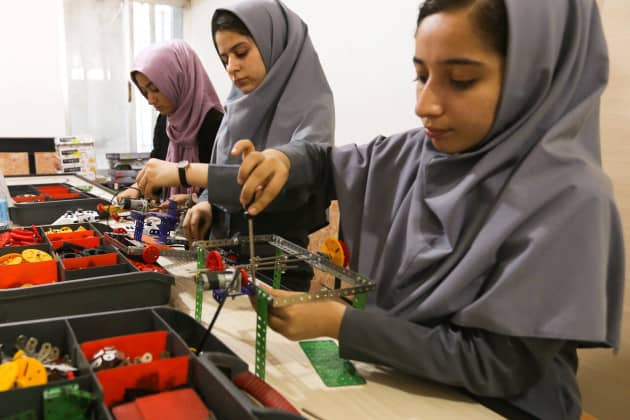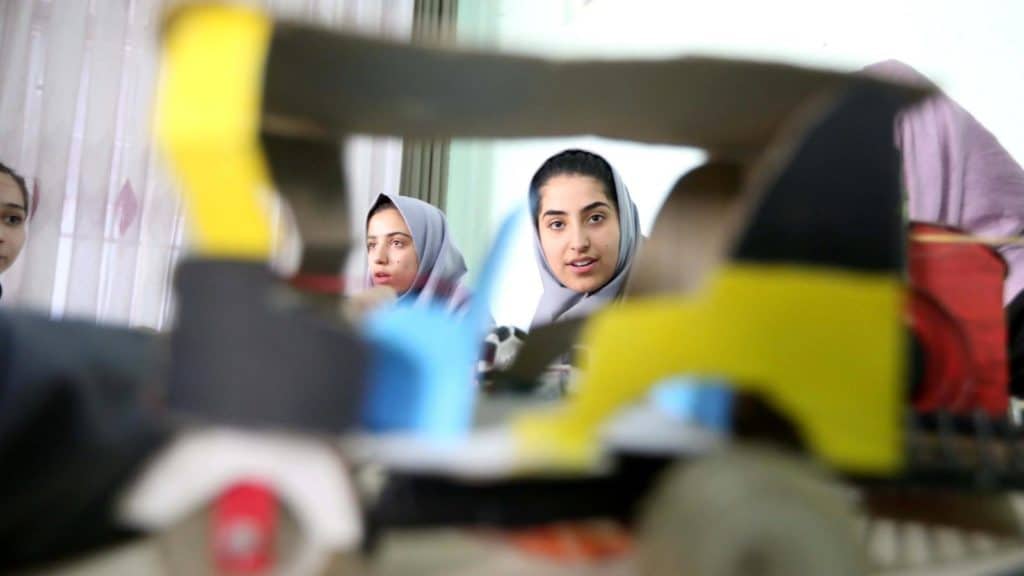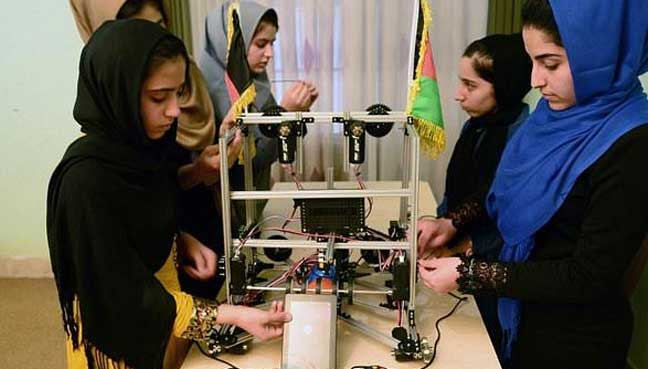
Public backlash regarding the rejection of visas for high school girls from Afghanistan was heard at the White House, according to reports from senior administration officials. The girls are part of a robotics team that was chosen for an international competition being held in the U.S. from July 16-18, but their visa requests were initially rejected twice.
Politico broke the news yesterday after the Department of Homeland Security announced that it had overturned the decision to reject their visa request by granting them “parole,” authorizing one-time, temporary entry into the country for humanitarian reasons or for the benefit of the public.
“We were disappointed, and we were feeling bad, but now we are very happy that they have given us a chance to go,” 14-year-old Fatemah Qaderyan told Reuters about their feelings following the initial rejection and subsequent overturn.

According to officials at the National Security Council, President Donald Trump specifically asked that the girls’ admission be reconsidered in time for them to attend the competition. Afghanistan isn’t one of the six countries that was targeted by Trump’s travel ban, and it’s unclear why they were rejected in the first place. Regarding the Afghan girls’ rejection and a similar visa rejection for the robotics team in Gambia, the U.S. State Department vaguely explained that “all visa applications are adjudicated on a case-by-case basis in accordance with U.S. law.”
The girls from Afghanistan went to great lengths just to apply for the visas in the months leading up to the competition. They traveled twice from their hometown of Herat to the U.S. Embassy in Kabul, which is 500 miles away and a treacherous journey and locale. Kabul, the nation’s capital, was just recently the site of a bombing that left 150 people dead at the end of May. Despite the danger that the city itself poses, the girls were adamant about applying so they could attend the competition. When they were rejected, they became resigned to watching the robot they worked on for six months over Skype as it competed.

“The State Department worked incredibly well with the Department of Homeland Security to ensure that this case was reviewed and handled appropriately,” Dina Powell, Trump’s deputy national security adviser for strategy, said in a statement. “We could not be prouder of this delegation of young women who are also scientists — they represent the best of the Afghan people and embody the promise that their aspirations can be fulfilled. They are future leaders of Afghanistan and strong ambassadors for their country.
Their robot has the ability to sort balls, recognize blue and orange, and move objects to their proper places. The team from Gambia’s robot has a method for cleaning contaminated rivers, which could help solve the global water crisis, and the team’s visas were cleared last week.
One of the reasons the girls may not have been allowed to enter the U.S. is the fear that they will arrive with a temporary visa and then end up escaping and staying for good. Not only is the U.S. cracking down on illegal immigration, but this situation doesn’t bode well for Afghanistan either. Brain drain, which is the emigration of highly-trained or intelligent people from a country, has particularly affected the nation in recent years. Sending bright young women threatens to increase the number of intellectual individuals that leave Afghanistan for good. According to Elham Shaheen, a senior official at the Ministry of Higher Education who manages foreign-study policies, 10% of Afghans that are awarded temporary visas for academic purposes never return.

Nevertheless, this deterrence has not crushed the team’s spirit and they were awarded visas just in the nick of time.
“It’s a happy moment for our team,” team manager Alireza Mehraban told the AP. “We are going from a war-torn country and the purpose is to show the capability of Afghan women. It’s an important step for Afghan women.”
In a country where women are largely underestimated and gender equality is not a household-term, this opportunity is so important for this generation of girls. They will likely go on to achieve great things in the STEM field and encourage their peers to do the same.
“I truly believe our greatest power is the power to convene nations, to bring people together in the pursuit of a common goal and prove that our similarities greatly outweigh our differences,” said First Global President Joe Sestak in a statement.


